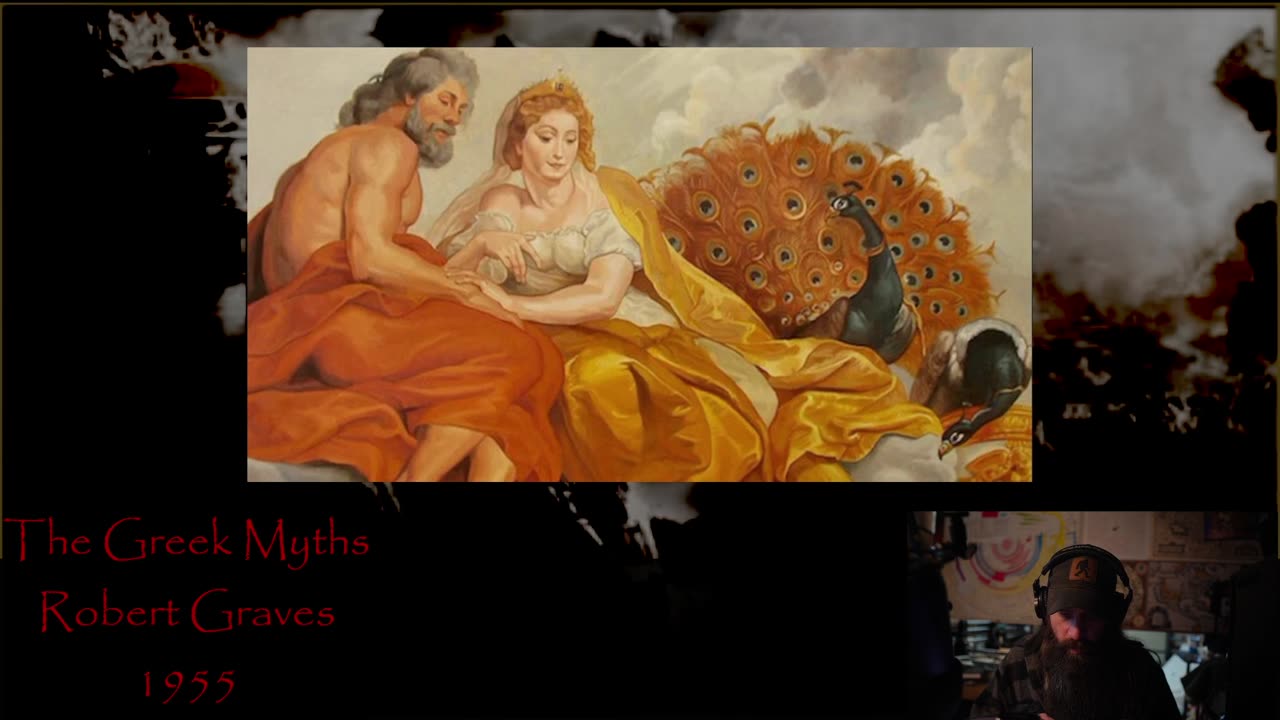Premium Only Content

The Greek Myths - B1 - 12
The Greek Myths - B1 - 12
This video explores the Greek mythology surrounding Hera, the wife of Zeus, detailing her origins, marriage, and offspring. It depicts her upbringing, the nature of her marriage to Zeus, and various myths surrounding her children, including Ares and Hephaestus. Themes of transformation, divine lineage, and rituals associated with Hera are highlighted throughout the narrative.
Key Points:
Hera's Origins
Hera, daughter of Cronus and Rhea, is said to have been born on the island of Samos or at Argos and raised in Arcadia. The myths detail her early life and the protective figures who nurtured her, emphasizing her importance in Greek mythology.
Marriage to Zeus
Zeus courted Hera unsuccessfully until he disguised himself as a cuckoo. After she took care of him, he revealed his true form, leading to their controversial union, symbolizing Zeus's conquest over her.
Gifts at Their Wedding
During Hera and Zeus's wedding, all gods gifted her, including Earth giving a tree of golden apples, which later became significant in various myths, representing wealth and prosperity.
Children of Hera
Hera had several children, among them Ares, Hephaestus, and Hebe. Myths tell of unusual conceptions and the nature of their divine gifts and roles within Greek mythology.
Symbolism and Worship
Hera was connected to various symbols like the cuckoo and pomegranate, highlighting her role as a goddess of fertility and the seasons. Her worship involved rituals that reflected her divine status and the agricultural calendar.
Cultural Significance
The myths highlight societal norms such as monogamy, relationships between gods and mortals, and the significance of divine favor in Greek culture. Hera's story interweaves themes of power, transformation, and worship.
-
 LIVE
LIVE
FyrBorne
12 hours ago🔴Warzone/Black Ops 7 M&K Sniping: From the Zone to Zombs
541 watching -
 LIVE
LIVE
blackfox87
1 hour ago🟢 SUBATHON DAY 3 | Premium Creator | #DisabledVeteran
135 watching -
 14:38
14:38
Nikko Ortiz
17 hours agoADHD vs Autism
37.4K26 -
 LIVE
LIVE
EXPBLESS
1 hour agoArena Breakout (This Game Is Hard But Fun) How Much Can We Make Today? #RumbleGaming
39 watching -
 4:40
4:40
GritsGG
16 hours agoTwo Easter Eggs on Call of Duty Warzone!
35.4K2 -
 2:08:19
2:08:19
Side Scrollers Podcast
23 hours agoNetflix Execs to TESTIFY Over LGBTQ Agenda + IGN DESTROYS Xbox Game Pass + More | Side Scrollers
72.4K18 -
 5:08:55
5:08:55
Dr Disrespect
21 hours ago🔴LIVE - DR DISRESPECT - BABY STEPS - THE VERY VERY LAST CHAPTER
150K17 -
 10:28
10:28
BlabberingCollector
17 hours agoAsk Blabs, Episode 5 | Answering Your Wizarding World Related Questions
24.4K2 -
 18:09
18:09
Forrest Galante
5 days agoI Survived 24 Hours In The World's Deadliest Jungle
202K33 -
 LIVE
LIVE
Lofi Girl
2 years agoSynthwave Radio 🌌 - beats to chill/game to
261 watching
